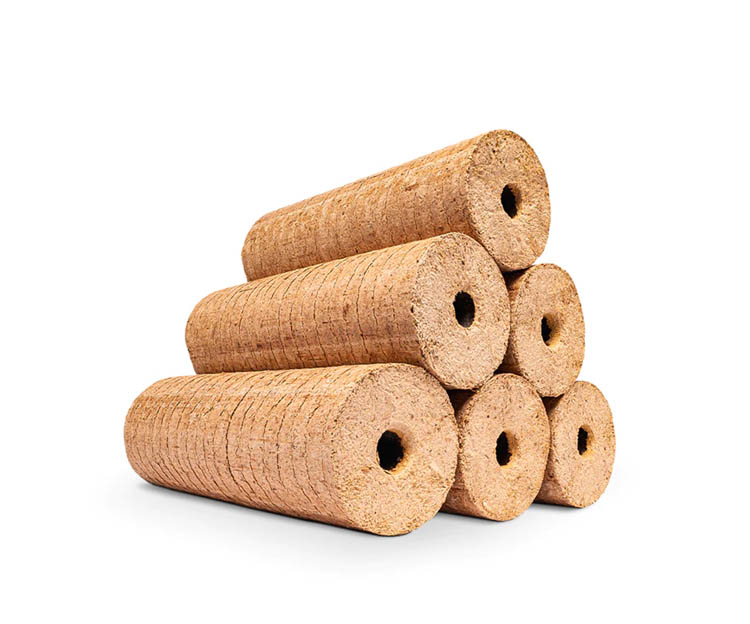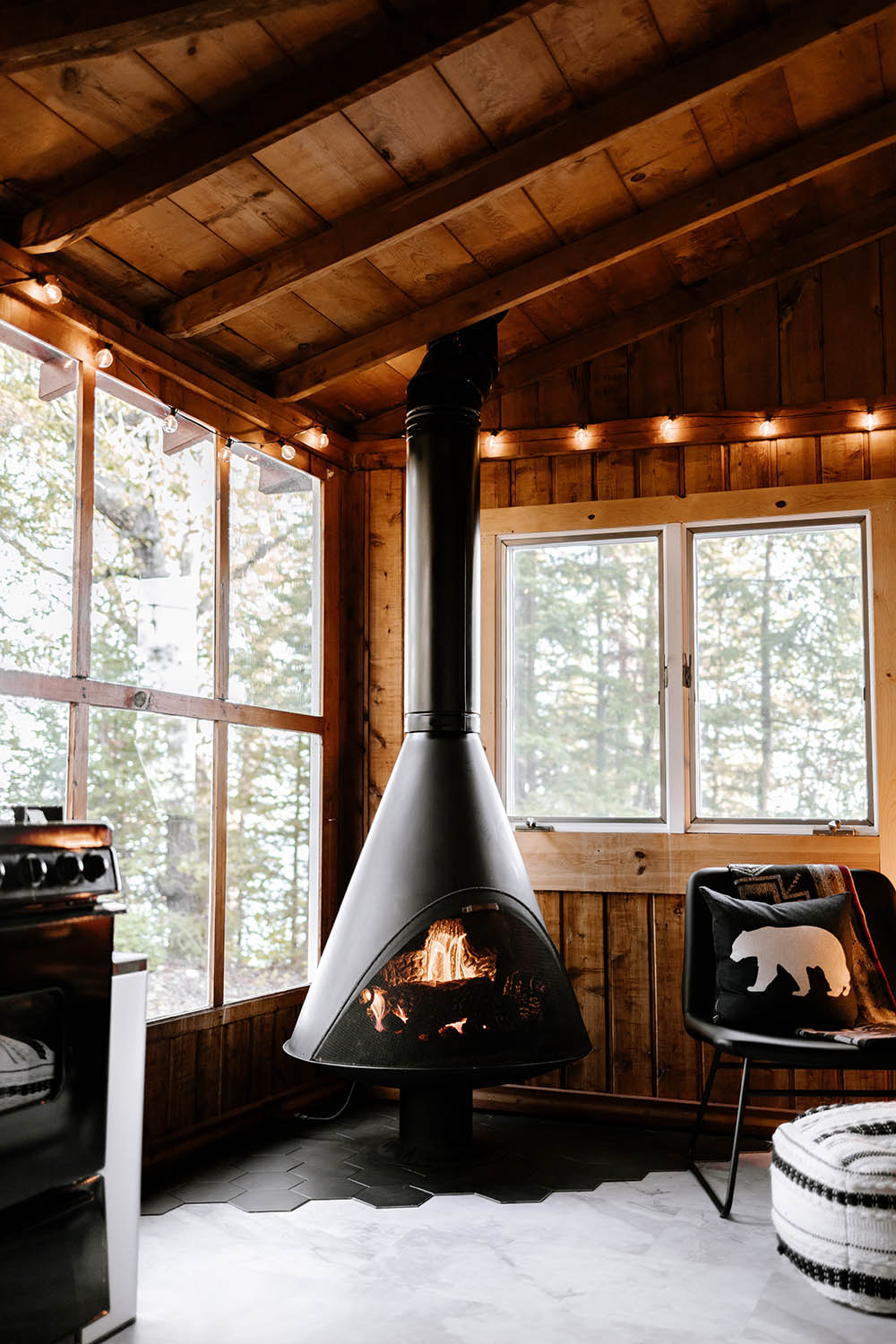
When the chilly winds of winter start to blow and the temperatures plummet, there’s nothing quite like the warmth and coziness of a well-heated home. While there are various ways to keep your abode toasty, one method that has gained popularity in recent years is the use of hardwood heat logs. These efficient and elegant heating sources are not only environmentally friendly but also bring a touch of rustic charm to your living space. In this article, we will explore the world of hardwood heat logs, their benefits, and how they can enhance the ambiance of your home.
What are Hardwood Heat Logs?
Hardwood heat logs, also known as wood briquettes, are a type of compressed wood fuel made from sawdust, wood shavings, and other wood residues. These materials are compressed into dense logs or blocks without the use of any additives or chemicals, making them a clean-burning and eco-friendly heating option. The production process involves applying high pressure to the wood fibers, which binds them together tightly, creating a solid and uniform log.
Types of Hardwood Heat Logs
Hardwood heat logs come in various shapes and sizes, but two primary types dominate the market:
a. Log-shaped Heat Logs
These heat logs closely resemble traditional firewood logs, making them a perfect choice for those who appreciate the aesthetic of a crackling fire. They often have a diameter similar to that of a regular log, making them compatible with standard log burners and fireplaces.
b. Block-shaped Heat Logs
Block-shaped heat logs are compact and uniform, making them easy to stack and store. They are an excellent choice for those seeking a convenient and efficient heating solution. These blocks can be used in specialized heat log stoves or inserted into existing wood-burning stoves and fireplaces.

Benefits of Hardwood Heat Logs
Hardwood heat logs offer a range of advantages that make them a preferred choice for many homeowners. Let’s delve into some of these benefits:
Low Moisture Content
Unlike freshly cut firewood, which can contain a significant amount of moisture, hardwood heat logs are typically dried to a moisture content of around 10-12%. This low moisture level ensures a cleaner burn with minimal smoke and creosote buildup in your chimney or stove pipe. It also means that hardwood heat logs ignite quickly and produce consistent heat.
High Energy Efficiency
One of the primary benefits of hardwood heat logs is their exceptional energy efficiency. Due to their uniform composition and density, they burn more efficiently than traditional firewood. This means that you’ll get more heat output for the same amount of wood, leading to cost savings and reduced environmental impact.
Reduced Carbon Footprint
Using hardwood heat logs is an environmentally responsible choice. These logs are typically made from wood waste and byproducts, reducing the need for additional timber harvesting. Additionally, their efficient burning process emits fewer greenhouse gases, making them a more sustainable heating option compared to fossil fuels.
Clean and Ash-Free
When hardwood heat logs burn, they produce very little ash compared to traditional firewood. This means less time spent cleaning out your stove or fireplace and more time enjoying the warmth of your home.
Consistent Size and Quality
Hardwood heat logs are manufactured with precision, ensuring that each log or block is of consistent size and quality. This uniformity makes them easy to handle, stack, and store, providing a hassle-free heating experience.
Versatile
Hardwood heat logs can be used in various heating appliances, including wood-burning stoves, fireplaces, and even outdoor fire pits. Their versatility allows you to choose the best heating method for your space and preferences.
Tips for Using Hardwood Heat Logs
To make the most of your hardwood heat logs and ensure a safe and enjoyable heating experience, consider the following tips:
Appropriate Appliances
Use hardwood heat logs in wood-burning stoves and fireplaces that are designed to accommodate them. Consult the manufacturer’s guidelines for your specific heating appliance to ensure safe and effective use.
Proper Storage
Store your hardwood heat logs in a dry and well-ventilated area to maintain their low moisture content. This will ensure they burn efficiently and produce minimal smoke.
Ventilation
Proper ventilation is crucial when burning wood fuel. Ensure your home is adequately ventilated to allow for the exchange of fresh air and the removal of combustion byproducts.
Safe Handling
Handle hardwood heat logs with care and use appropriate safety equipment when loading them into your stove or fireplace. Keep a safe distance from the fire and supervise it at all times, especially if you have children or pets.
Regular Cleaning
Although hardwood heat logs produce less ash than traditional firewood, it’s still essential to clean your stove or fireplace regularly to maintain efficient burning and prevent creosote buildup.
The Aesthetic Appeal of Hardwood Heat Logs
In addition to their efficiency and environmental benefits, hardwood heat logs also bring a touch of elegance and rustic charm to your home. Here’s how:
A Cozy Atmosphere
The sight and sound of a crackling fire have a unique ability to create a cozy and inviting atmosphere in your home. Whether you choose log-shaped or block-shaped heat logs, the warm glow of burning wood adds character to your living space, making it the perfect setting for relaxation and quality time with loved ones.
Traditional Elegance
If you have a penchant for traditional decor, hardwood heat logs fit seamlessly into your design scheme. They offer a classic and timeless look that complements various interior styles, from rustic to modern.
Natural Beauty
Hardwood heat logs are crafted from natural wood fibers, which means they retain the beauty of the wood’s grain and color. When they burn, they release the rich aroma of hardwood, further enhancing the ambiance in your home.
Environmental Considerations
Using hardwood heat logs aligns with environmentally conscious living. Here’s how they contribute to a greener lifestyle:
Reduced Deforestation
By utilizing wood waste and byproducts to create heat logs, the demand for fresh timber is reduced. This, in turn, helps mitigate deforestation and its adverse effects on the environment.
Sustainable Practices
Many manufacturers of hardwood heat logs adhere to sustainable forestry practices. They source wood materials responsibly, ensuring that forests are managed in a way that promotes regeneration and biodiversity.
Lower Emissions
Hardwood heat logs burn more cleanly than many other forms of wood fuel, resulting in lower emissions of harmful pollutants such as carbon monoxide and particulate matter. This contributes to improved air quality and reduced health risks.
Conclusion
Hardwood heat logs offer a winning combination of efficiency and elegance, making them an ideal choice for those seeking a cozy and eco-friendly heating solution. Their high energy efficiency, low moisture content, and reduced environmental impact make them a responsible choice for homeowners looking to reduce their carbon footprint.
Moreover, the aesthetic appeal of hardwood heat logs adds a touch of natural beauty and traditional elegance to your home. The warmth of a crackling fire creates a welcoming atmosphere that invites relaxation and enjoyment, making your living space a haven of comfort during the cold winter months.



